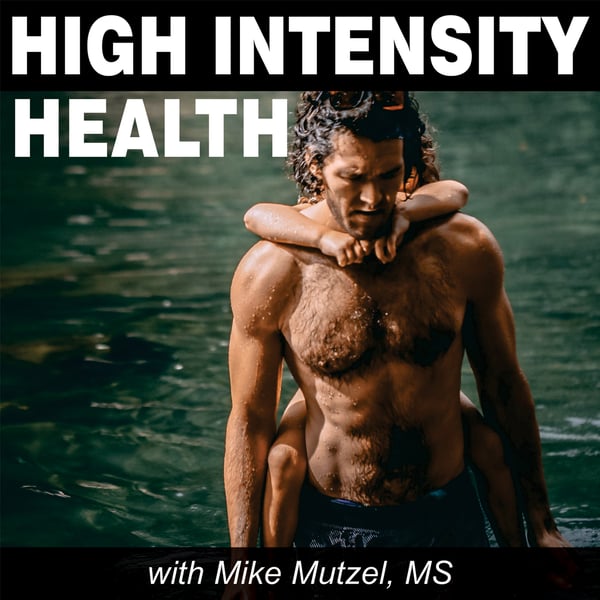Meat & Heart Health: NEW Plant-Based VS Omnivore Diet Study
High Intensity Health with Mike Mutzel, MS
Mike Mutzel
4.8 • 1.2K Ratings
🗓️ 7 October 2024
⏱️ 14 minutes
🧾️ Download transcript
Summary
Let's discuss a study comparing plant-based, flexitarian, and omnivorous diets, focusing on their effects on cardiovascular risk factors and body composition.
Elongate Your Fast with the updated Berberine Fasting Accelerator by MYOXCIENCE: https://bit.ly/berberine-fasting-accelerator
Use code podcast to save 12%
Link to research: https://bit.ly/4ebrkFB
----------------Show Notes------------------------------
0:00 Intro
0:20 Study on plant-based diets and cardiovascular risk factors.
0:58 Discussion of higher alcohol and sweets consumption in omnivores.
1:55 Meat consumption differences among vegans, flexitarians, and omnivores.
4:48 Differences in body composition between omnivores, flexitarians, and vegans.
5:39 Insights on fruit and vegetable consumption as a proxy for diet quality.
6:35 LDL cholesterol and triglycerides are higher in omnivores.
7:49 Study limitations: sweets, alcohol, and calorie consumption impact results.
8:41 Flexitarian diets and pulse wave velocity compared to other groups.
Transcript
Click on a timestamp to play from that location
| 0:00.0 | A new study finds plant-based diets, reduced cardiovascular risk factors more so than omnivorous or |
| 0:04.9 | flexitarian diets. Let's break down this observational cohort study that was published by |
| 0:10.0 | investigators over in Germany. Now if you read the title and the Lay Press |
| 0:14.3 | overview and this was published by the way in BMC nutrition, the title is |
| 0:18.6 | Plant-based Diets and Caravasco Risk Factors, a comparison of |
| 0:21.2 | flexitarians, vegans, and omnivores in a cross-sexual study. |
| 0:25.3 | You read the discussion, you read the abstract, you think, oh my gosh, you know, if I want to reduce |
| 0:29.9 | my carvasker risk over time, the best possible way to do that from a |
| 0:34.5 | nutritional standpoint is to go on a plant-based diet. That's the ultimate |
| 0:38.5 | conclusion, but when you look at the baseline characteristics of these individuals and the different |
| 0:45.3 | aspects of the diet it gives us some important considerations to suggest that |
| 0:52.3 | the omnivores in this particular study |
| 0:55.8 | were not as healthy compared to the vegans. Now that could be because of the |
| 1:00.8 | foods that they're eating that could also be of as a consequence of other things that they are participating in such as consuming more sweets and alcohol |
| 1:08.7 | So when if we look at the food group intake here, which by the way wasn't really discussed in terms of a limiting factor in terms of a limitation of the outcomes. |
| 1:19.0 | If we look at alcohol consumption, and I'm referring here to Table 2, which you can see if you're watching over in Spotify or |
| 1:24.0 | over in iTunes or YouTube you can see here the alcohol consumption. |
| 1:29.8 | It's about three-fold difference between the vegans, flexitarians, and omnivores. |
| 1:35.8 | Okay, so if you look at that's, I believe this is grams per week over time. |
| 1:39.9 | So the, essentially what you're seeing here is the alcohol consumption is significantly higher. |
| 1:46.0 | Sweets consumption is significantly higher. |
| 1:50.0 | Beverage consumption is also higher, again in the omnivores compared to the flexitarians |
... |
Please login to see the full transcript.
Disclaimer: The podcast and artwork embedded on this page are from Mike Mutzel, and are the property of its owner and not affiliated with or endorsed by Tapesearch.
Generated transcripts are the property of Mike Mutzel and are distributed freely under the Fair Use doctrine. Transcripts generated by Tapesearch are not guaranteed to be accurate.
Copyright © Tapesearch 2025.

